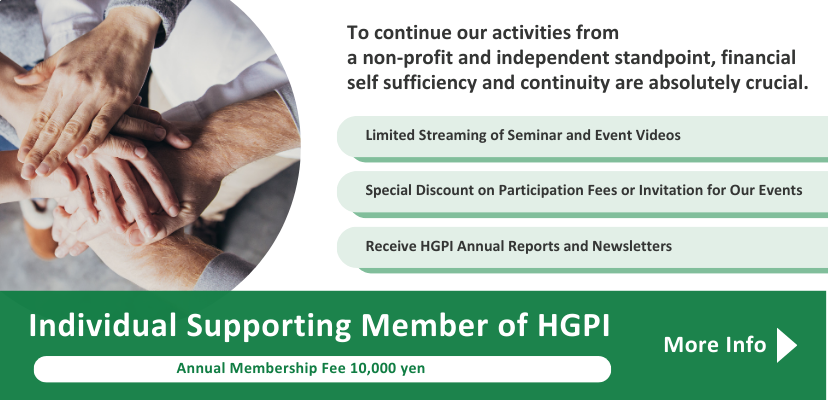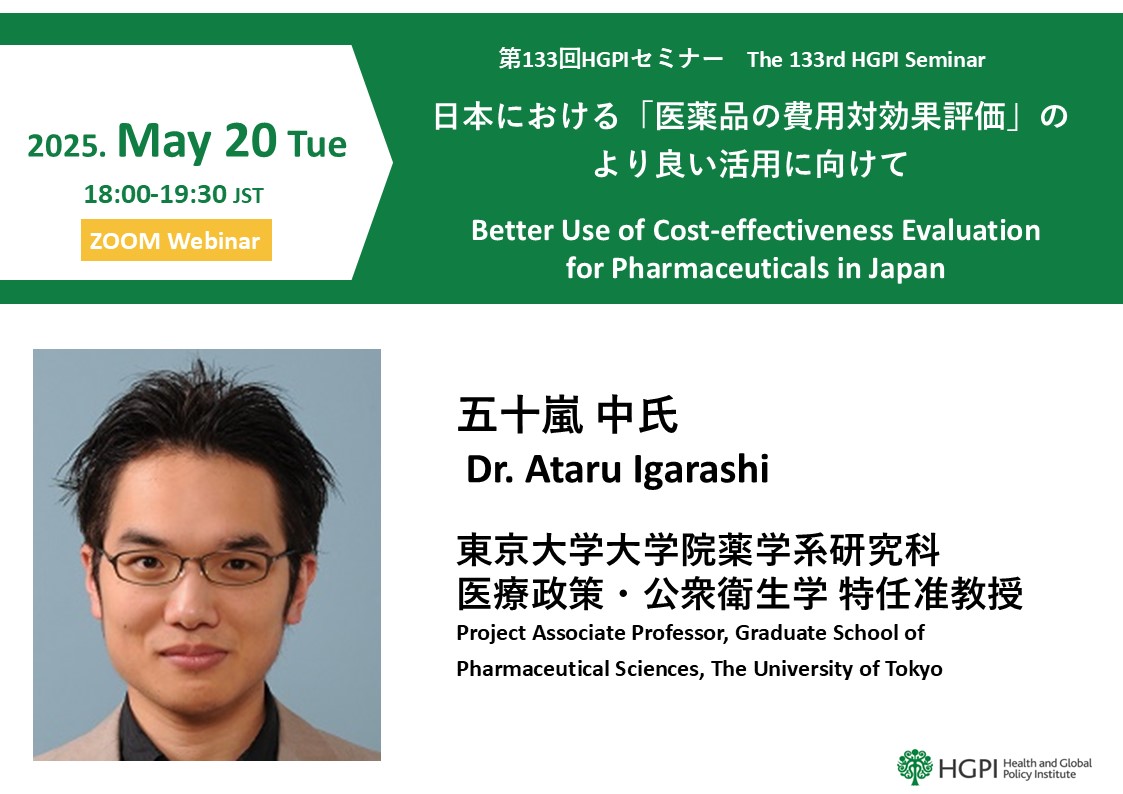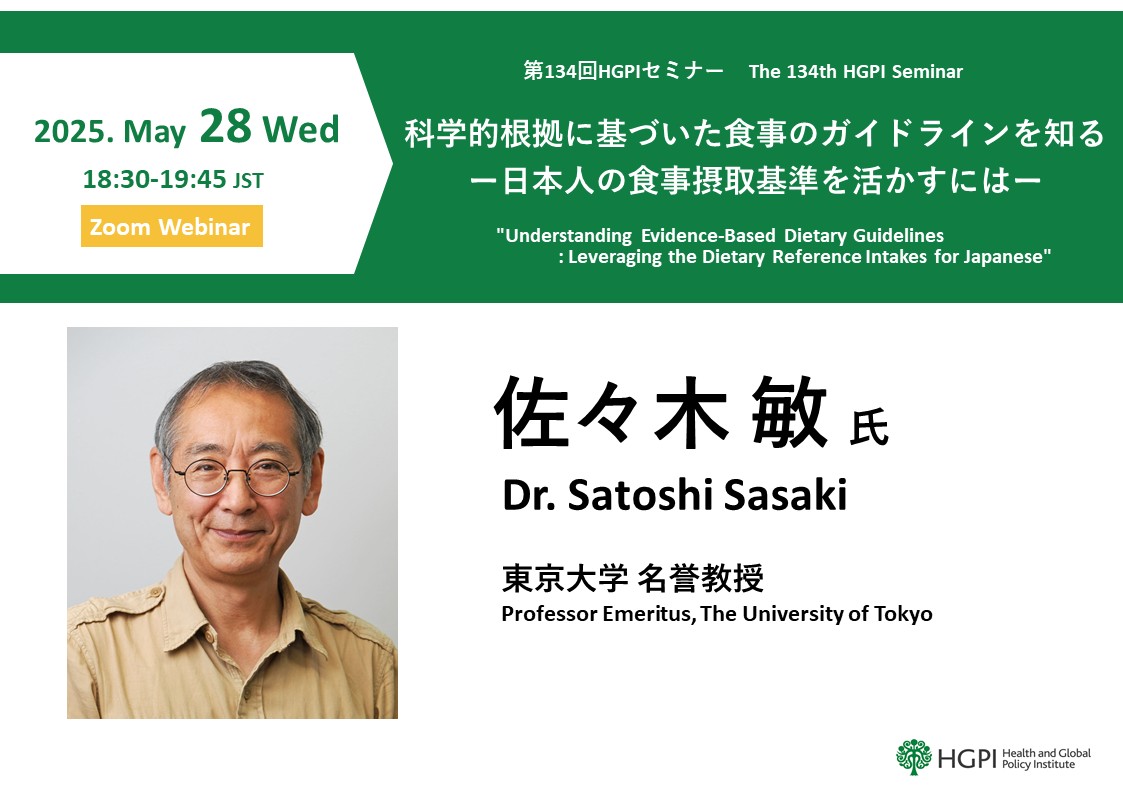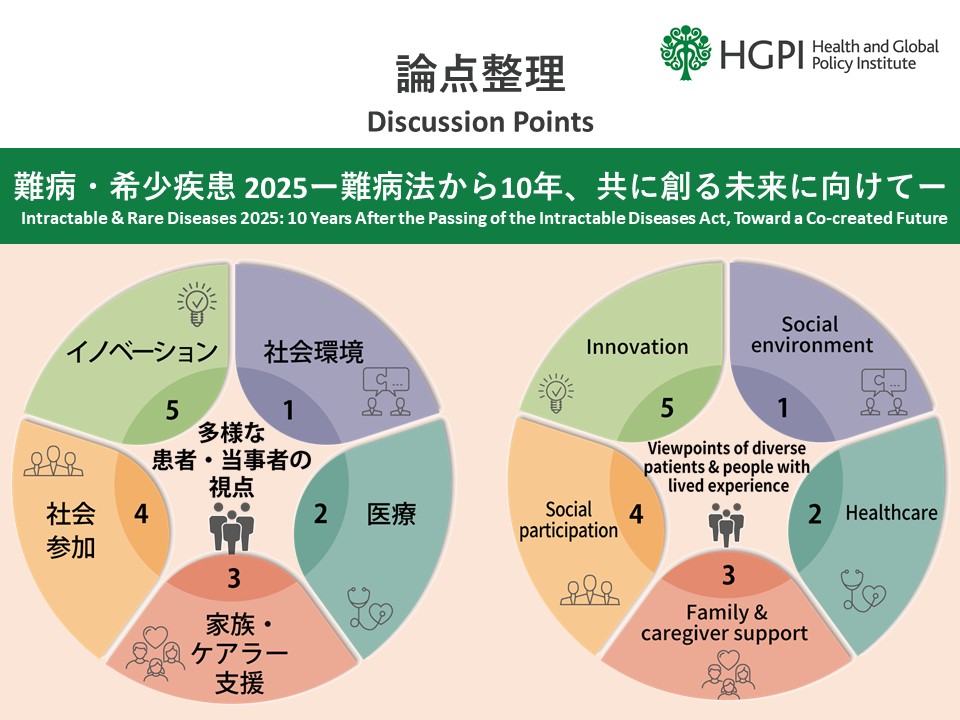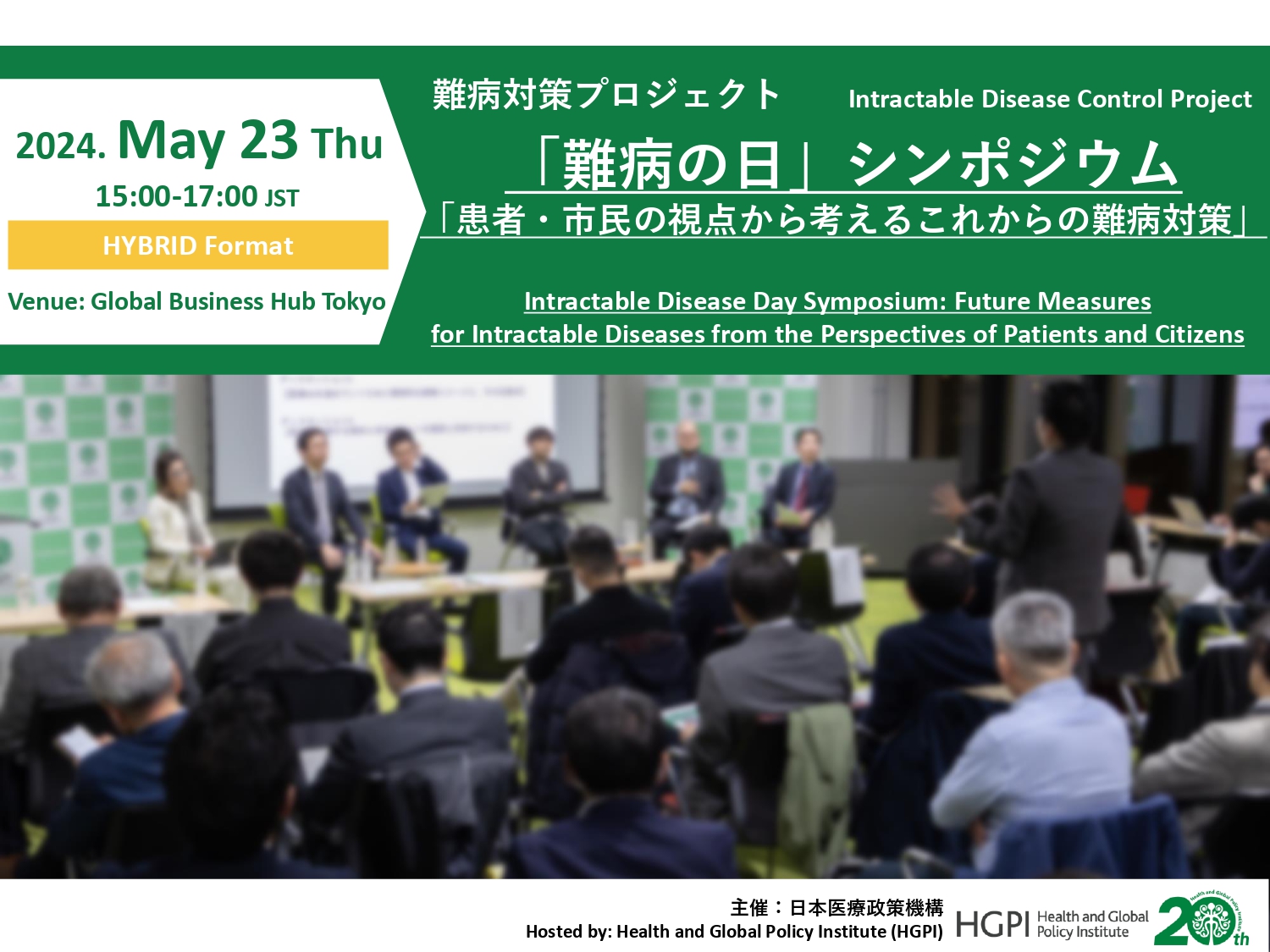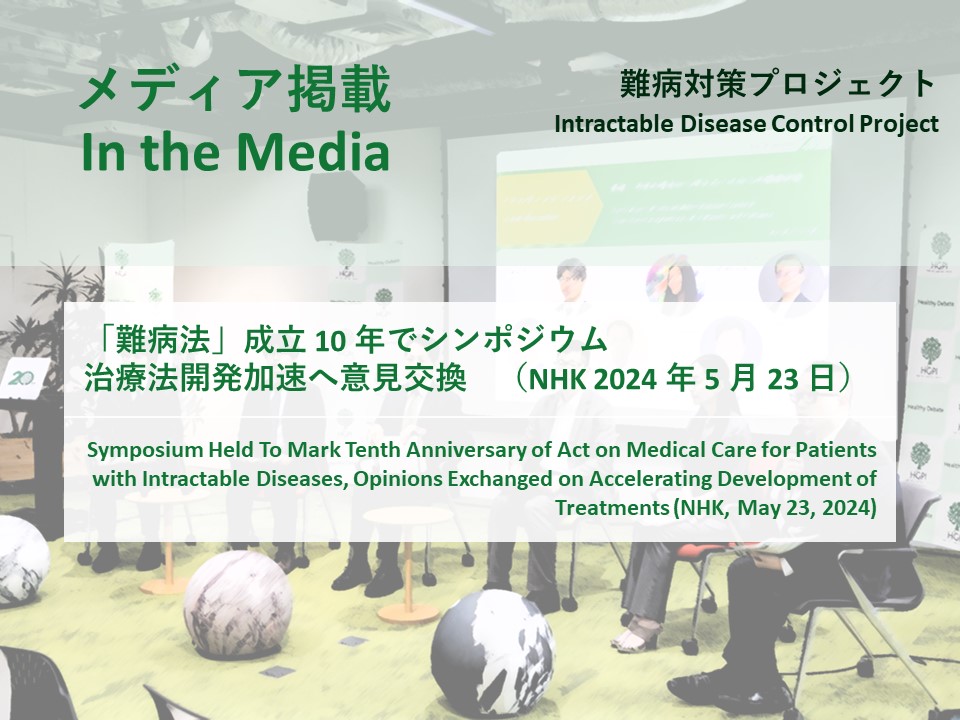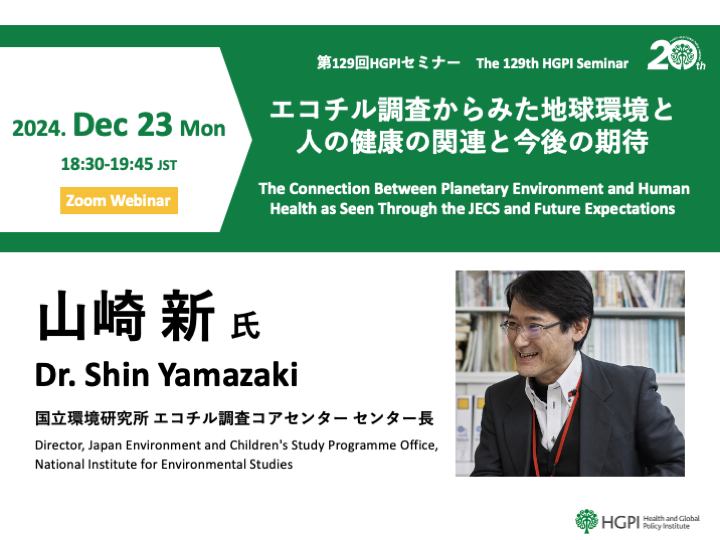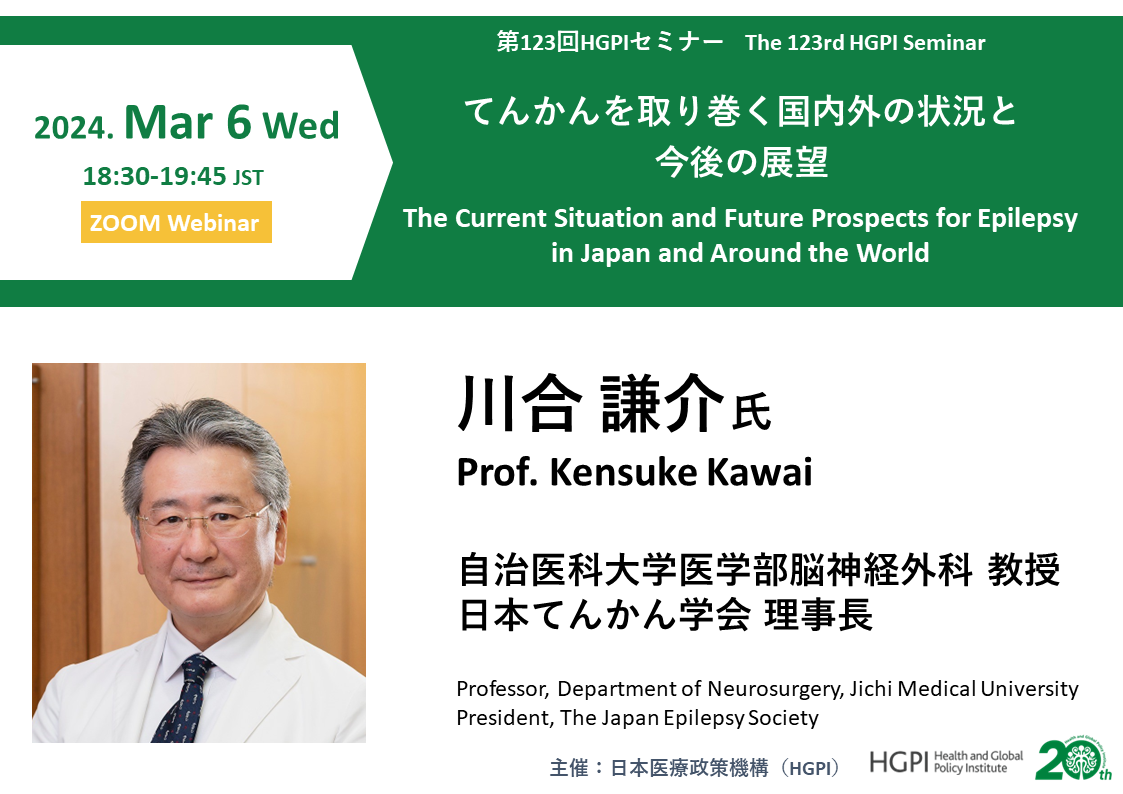[Event Report] The 130th HGPI Seminar “Marking a Decade of the Act on Medical Care for Patients With Intractable Diseases: Connecting Intractable Diseases and Society From the Perspective of a Media Professional and Family Member” (January 28, 2025)
date : 4/30/2025
Tags: HGPI Seminar, Intractable & Rare Diseases, Other Activities
![[Event Report] The 130th HGPI Seminar “Marking a Decade of the Act on Medical Care for Patients With Intractable Diseases: Connecting Intractable Diseases and Society From the Perspective of a Media Professional and Family Member” (January 28, 2025)](https://hgpi.org/en/wp-content/uploads/sites/2/hs130-top_JPNENG-2.png)
The 130th HGPI Seminar featured Ms. Nana Ando, a journalist on the medical desk at the Editorial Bureau of the Yomiuri Shimbun Tokyo Headquarters. In her talk, Ms. Ando shared a wide range of observations from her experiences as a medical reporter and a family member of a person living with an intractable disease. Topics she covered included the current circumstances surrounding intractable diseases, the role of the media as seen through the lens of her past coverage of intractable diseases, and necessary future policies for intractable diseases.
<POINTS>
- In terms of healthcare, the challenges encountered by people living with intractable diseases include those related to diagnosis and treatment. In terms of daily living, their challenges include the financial and emotional burdens of hospital visits and a lack of employment support. It is important that people living with intractable diseases are provided with support that encompasses both treatment and daily life.
- When disseminating information on intractable diseases, it is important to clearly communicate the issues faced by people living with intractable diseases and their families, to propose solutions to those issues, and to endeavor to fully convey content that is specialist in nature. When doing so, one must demonstrate how that information is meaningful and relevant in terms of developments in society.
Ms. Ando’s starting point in covering intractable diseases
Ms. Ando started publishing a series of articles on intractable diseases in 2017. The first series focused on a family with a two-year-old girl with spinal muscular atrophy (SMA) who had participated in a global clinical trial. In addition to sharing the history of SMA treatment which had lacked a fundamental treatment until the development of a revolutionary therapeutic, the series covered the girl’s progress – how she became able to grasp objects and sit up on her own when she previously could barely move her limbs. The emergence of this new SMA treatment led to the inclusion of SMA in mass screenings for newborns in each region, and Ms. Ando later conducted independent research and reported on developments in each municipality.
The environment for intractable diseases, including challenges related to treatment and daily living
Through her coverage, Ms. Ando feels that key healthcare-related issues include a lack of therapeutics or limited options for therapeutics, and that people must sometimes go without a diagnosis or treatment. In terms of daily living, challenges include the financial and emotional burdens of making hospital visits and undergoing treatments over long periods of time, a lack of support or understanding from employers or schools, and a lack of integrated support that includes translational therapy or that involves family members. It is vital that support covers both treatment and daily life.
Methods of delivering information on intractable diseases
Information on intractable diseases is often highly specialized and with difficult-to-understand terminology. However, it does provide a point of contact for many people to develop an initial interest in intractable diseases. To help more people come into contact with information on intractable diseases, Ms. Ando works hard to cover topics that open new doors to reaching those people, with past columns covering topics like “Doctor-led evacuation training for children requiring continuous medical care” and “New forms of employment using robots.”
Points to keep in mind when providing information
There are three key points for providing information. The first is to clearly identify issues faced by people living with intractable diseases and their families and to propose solutions or improvements. The second is to weave narrative and facts together so readers who are encountering such information for the first time can understand and accept it. The third is to clarify the significance of the timing the information is being provided based on new perspectives on how it intersects with developments in society beyond intractable diseases.
Feelings and discoveries of a family member of someone living with an intractable disease
Ms. Ando’s younger sister was diagnosed with Rett syndrome at age nine, so Ms. Ando has firsthand experience as the sibling of someone with an intractable disease. Such children are referred to as “Kyodai-ji” in Japanese, and the term is somewhat equivalent to “glass child.” Children with a brother or sister with a disease or disability may experience feelings of loneliness and guilt, and are also in need of support. Based on her experiences, Ms. Ando published a series of articles under the theme, “Sibling of the Patient.” It carefully unraveled the problems faced by the siblings of people living with intractable diseases, discussed the importance of visibility for the siblings of people living with intractable diseases, examined issues surrounding what are known as “young caregivers,” and provided hints for supporting them.
Message from Ms. Ando
To people living with intractable diseases and their families:
“There will always be someone who is doing their best to understand you and your loved ones.”
To those close to them:
“Even if you can’t find the right words immediately, staying by their side is certain to be a major source of support.”
[Event Overview]
- Speaker: Ms. Nana Ando (Journalist, Medical Desk, Editorial Bureau, Tokyo Headquarters, The Yomiuri Shimbun)
- Date & Time: Tuesday, January 28, 2025; 15:00-16:30 JST
- Format: Online (Zoom webinar)
- Language: Japanese
- Participation Fee: Free
- Capacity: 500 participants
■Profile:
Ms. Nana Ando (Journalist, Medical Desk, Editorial Bureau, Tokyo Headquarters, The Yomiuri Shimbun)
Ms. Nana Ando is a graduate of the Chuo University Faculty of Law. She joined the Tokyo Headquarters of the Yomiuri Shimbun in 2010. After serving in posts at the Nagano Office and in the Economics Department, she has been covering healthcare as a journalist on the medical desk since 2017. Her main areas of coverage currently include pediatrics and reproductive medicine.
Ms. Ando’s younger sister lives with a designated intractable disease called Rett syndrome, and she became a medical journalist out of her desire to broadly disseminate reliable information to people living with intractable diseases and their families. In that role, she continues to report on research on new methods of diagnosing and treating intractable diseases, and on issues in the daily living environment for affected parties.
Top Research & Recommendations Posts
- [Policy Recommendations] The Path to a Sustainable Healthcare System: Three Key Objectives for Public Deliberation (January 22, 2026)
- [Research Report] Perceptions, Knowledge, Actions and Perspectives of Healthcare Organizations in Japan in Relation to Climate Change and Health: A Cross-Sectional Study (November 13, 2025)
- [Research Report] The 2025 Public Opinion Survey on Healthcare in Japan (March 17, 2025)
- [Policy Recommendations] Reshaping Japan’s Immunization Policy for Life Course Coverage and Vaccine Equity: Challenges and Prospects for an Era of Prevention and Health Promotion (April 25, 2025)
- [Research Report] The 2023 Public Opinion Survey on Satisfaction in Healthcare in Japan and Healthcare Applications of Generative AI (January 11, 2024)
- [Research Report] AMR Policy Update #4: Cancer Care and AMR (Part 1)
- [Policy Recommendations] Developing a National Health and Climate Strategy for Japan (June 26, 2024)
- [Public Comment Submission] “Assessment Report on Climate Change Impacts in Japan (Draft Overview)” (December 24, 2025)
- [Research Report] Survey of Japanese Physicians Regarding Climate Change and Health (December 3, 2023)
- [Research Report] The Public Opinion Survey on Child-Rearing in Modern Japan (Final Report) (March 4, 2022)
Featured Posts
-
2026-01-09
[Registration Open] (Hybrid Format) Dementia Project FY2025 Initiative Concluding Symposium “The Future of Dementia Policy Surrounding Families and Others Who Care for People with Dementia” (March 9, 2026)
![[Registration Open] (Hybrid Format) Dementia Project FY2025 Initiative Concluding Symposium “The Future of Dementia Policy Surrounding Families and Others Who Care for People with Dementia” (March 9, 2026)](https://hgpi.org/en/wp-content/uploads/sites/2/dementia-20260309-top.png)
-
2026-02-05
[Registration Open] (Webinar) The 141st HGPI Seminar “Current Status and Future Prospects of Korea’s Obesity Policy: Voices of People with Lived Experience in Policy Promotion” (March 3, 2026)
![[Registration Open] (Webinar) The 141st HGPI Seminar “Current Status and Future Prospects of Korea’s Obesity Policy: Voices of People with Lived Experience in Policy Promotion” (March 3, 2026)](https://hgpi.org/en/wp-content/uploads/sites/2/hs141-top-1.png)
-
2026-02-06
[Research Report] AMR Policy Update #5: Cancer Care and AMR (Part 2)
![[Research Report] AMR Policy Update #5: Cancer Care and AMR (Part 2)](https://hgpi.org/en/wp-content/uploads/sites/2/HGPI_20260204_AMR-Policy-Update-5.png)





